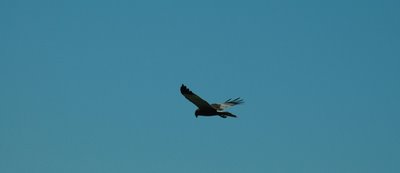
Marsh harrier
Vejlerne is a huge nature area situated between Lønnerup fjord to the west, Lund fjord to the north, Bygholm Vejle to the east and Limfjorden to the south. The area is about 6000 hectare, and it covers various nature types like meadow, reed wood, moor and fjord. The many fjords in the area were earlier connected to Limfjorden, and the areas with the byname Vejle (Bygholm Vejle, Arup Vejle, Krap Vejle etc) were a section of the waters close to the coasts of Limfjorden.
A drainage project had its beginning in 1866. Engineers, entrepreneurs, landowners tried with lesser succes during 40 years to drain the low waters of Limfjorden (Østerild fjord, Vesløs/Arup Vejle, Tømmerby fjord, Lund fjord and Bygholm Vejle), but they had to give up after having fought against weather, wind and the power of nature - and at last they had to admit that it was an almost impossible task to drain the earlier sea-bed.(with the technique from those days).
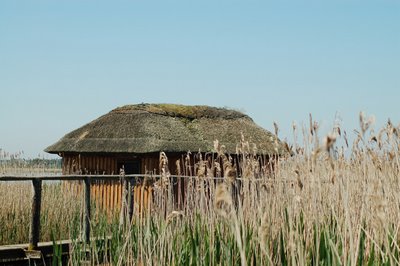
Krap Vejle
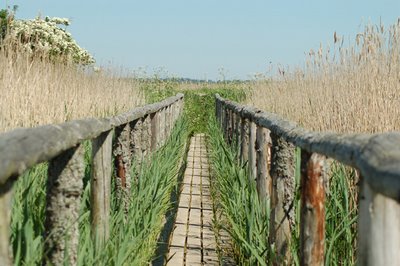
Krap Vejle, I heard but didn't see the Eurasian bittern
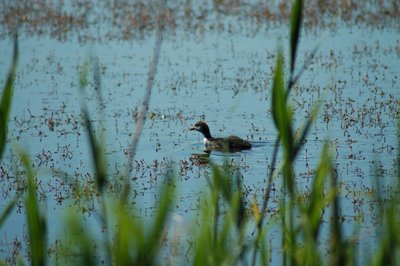
Krap Vejle, a young one
The area has since the stop of the drainage project been laid out as a protected nature reserve with national and international rules, and it is now assigned to the rules for EU-bird-protection-areas, Ramsar- areas and hunting-free areas. The varied nature in Vejlerne has a special chapter of Danish history, and many books have been written about the flora and fauna in this district. The area is now almost untouched, except the yearly cattle grazing and mowing in the largest meadow areas.
Vejlerne are visited all year by large bird populations. The amounts of ice and snow in winter decide how many birds are in the area. If the winter is mild there will be large flocks of pink-footed goose and whooper swan, various ducks and over wintering birds of prey, like blue harrier, white-tailed eagle and peregrine falcon. Upon meadows and fields are flocks of snow buntings and shore larks. If the winter is hard, Vejlerne might not be rich in birds.
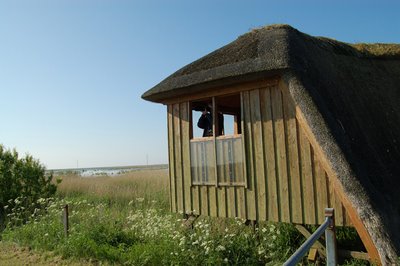
Kærup Holme

Kærup Holme, a view from the tower
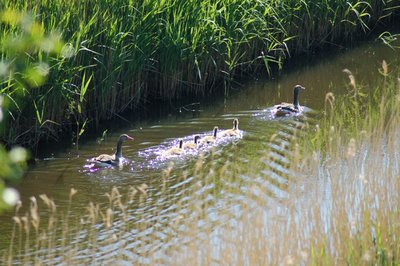
Kærup Holme, a nice little family
In spring come large populations of ducks if the waterlevels are ideal. Numerous are i.e. widgeon and teal. The pink-footed goose culminate in March, the same does the barnacle-goose. The spring migration guests arrive at the same time, Eurasian spoonbill, Common Crane, Black-tailed godwit and Pied Avocet. The wading birds' spring migration are dominated by various sandpipers, Eurasian golden plover, ruffs. Temminck's stint has one of the best localities in Vejlerne. As for breeding birds Vejlerne is unique, since the area has some of the most important populations of Eurasian bittern, greylag goose, spotted crake, common dunlin, black-tailed godwit, pied avocet, ruff, and black Tern. Little gull breeds occassionally.
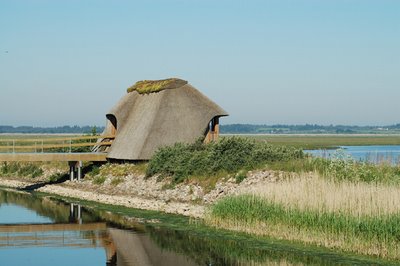
Bygholm Vejle, a popular place for bird watching.
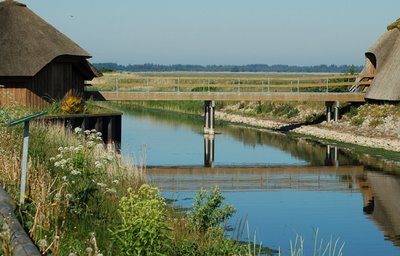
Bygholm Vejle, two towers connected
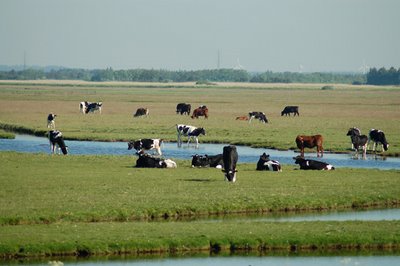
Bygholm Vejle, cattle-grazing
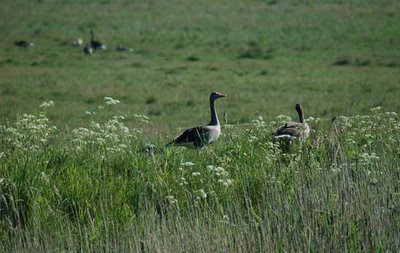
Bygholm Vejle, geese
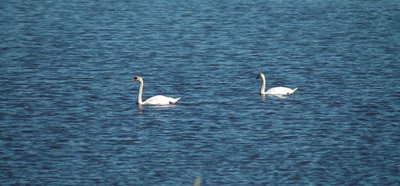
Bygholm Vejle, Mute swan
During summer the birds are dominated by wading birds, common shelduck, and usually seen little egret, great egret, Caspian tern etc. At the same time the Eurasian spoonbills arrive from the breeding place in Nibe bredning and gather at the meadow in Bygholm Vejle with their young ones. More than 100 birds at the same time (200/ 162). Little gulls are often numerous in Kærup Holme area. Late summer come more and more cranes and they culminate usually in the end of September or start of October with up till 121 birds (in 2006). The cranes are easiest to see from the Kraptårnet, where they come flying across the Bygholm meadow for overnighting or fouraging in the fields east of Vejlerne. Autumn is like spring, but often the populations are much larger, i.e. up till 40.000 ducks, 13.000 greylag geese and 18.000 golden plovers. Peregrine falcon is seen regularly and up till nine have been seen at the same time on a September's day. In September and October are large numbers of bearded tits with their characteristic flying up and down.
photo ⓒVejlerne: grethe bachmann
No comments:
Post a Comment
Thank you for visiting my blog!